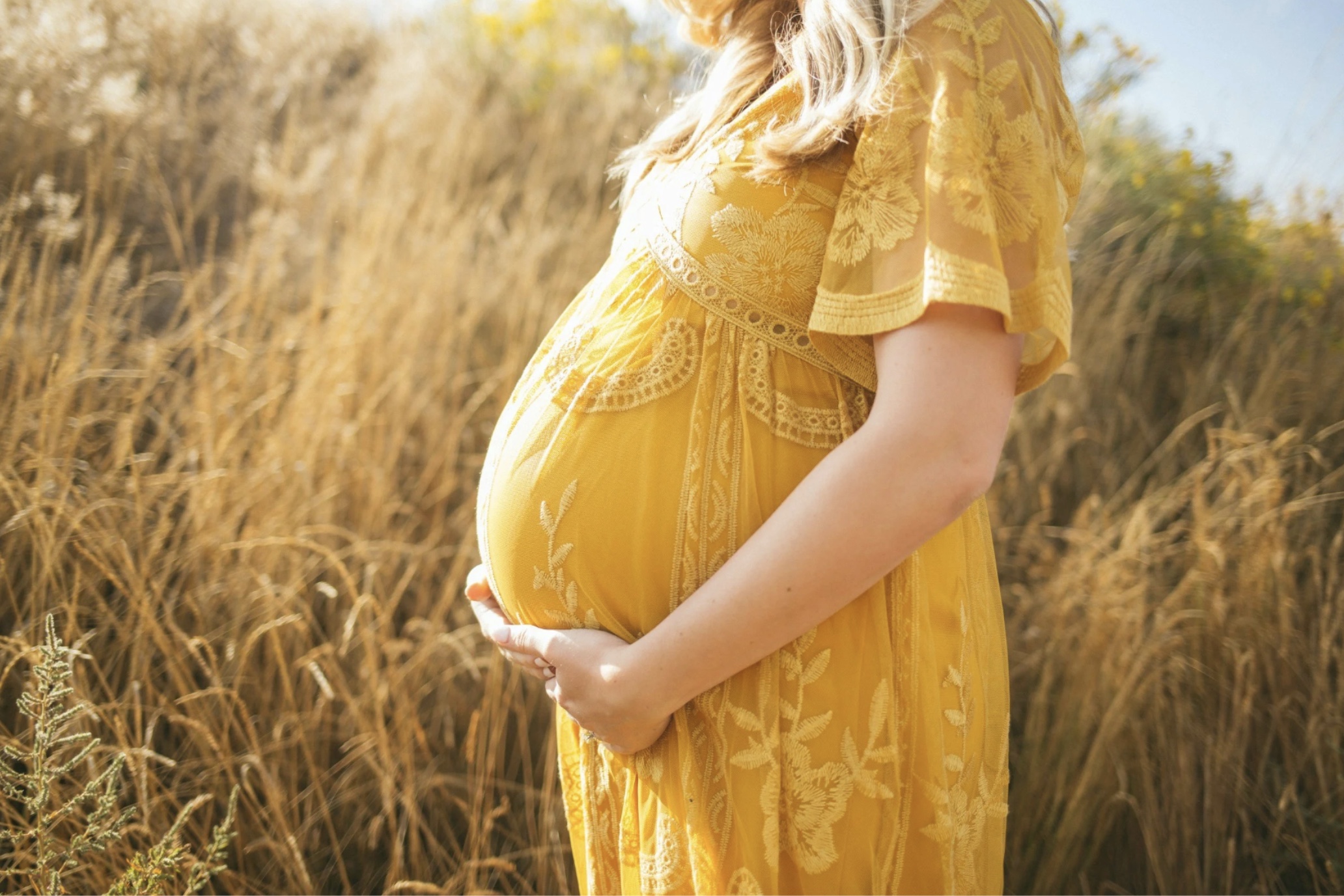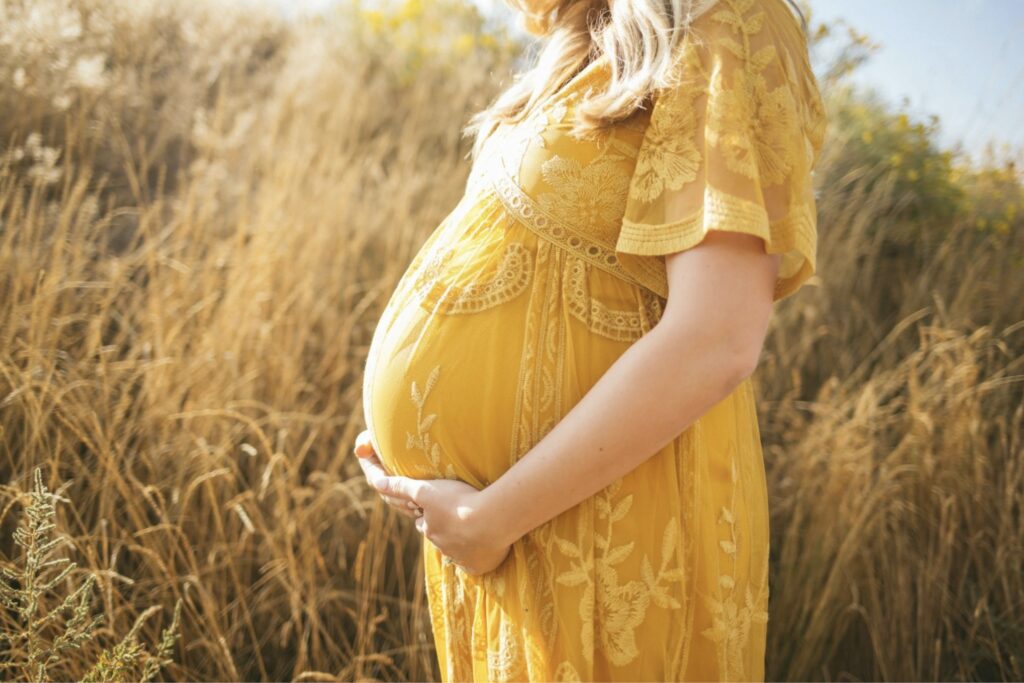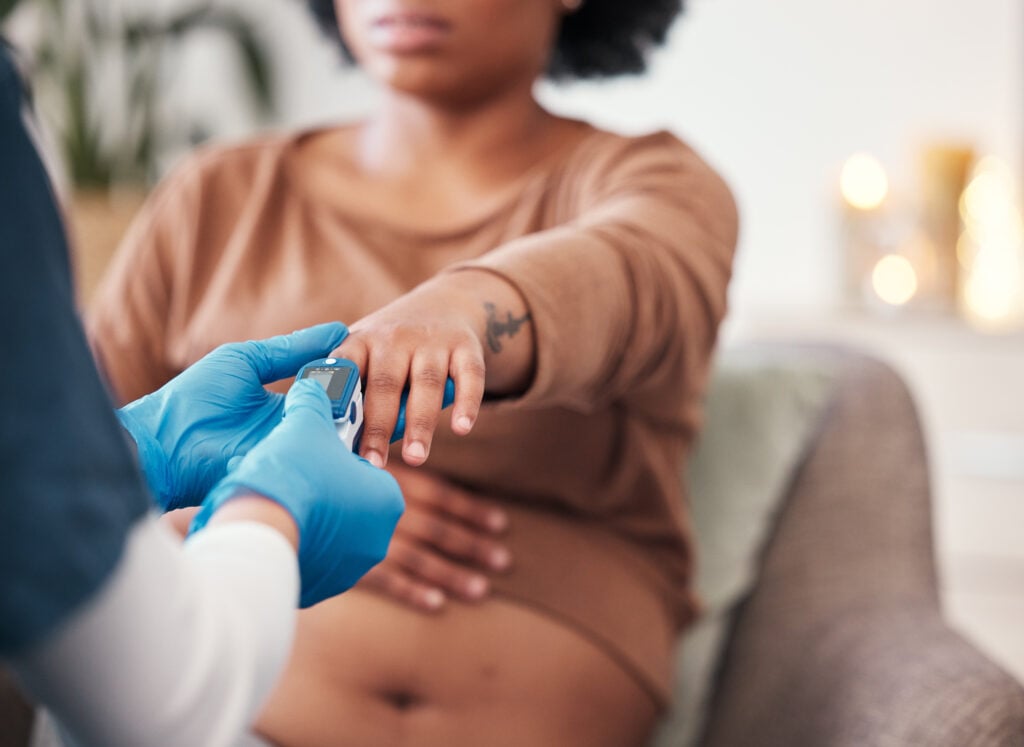
The second trimester (often dubbed the ‘golden trimester) runs from week 13 to week 27 of pregnancy. If you’re wondering why it’s called ‘golden’, keep reading, because we have good news for you. Early symptoms like morning sickness often go away, energy levels increase, and congratulations, the baby bump is FINALLY more visible! For many of the women who visit our centers in Elyria and Cleveland, this is when they typically report that pregnancy starts feeling more manageable.
This stage also marks an important time of growth. Your baby is continuing to grow quickly, and your body will be adjusting to support that development. Health care providers watch this phase carefully because reaching full term and lowering the risk of future health issues is important.
It’s also important to keep in mind that the habits and choices you make now can help you have a healthy pregnancy. They also prepare your body for the weeks ahead until your baby is born.
Here are five smart, practical choices to focus on during the golden trimester.
1. Stay Consistent With Prenatal Care
Regular prenatal care appointments are important during pregnancy. The second trimester has specific checkpoints that help guide your health care. These visits help your provider keep track of changes that affect you and your baby during pregnancy.
During your appointments, your health care team checks how your baby is growing. They also monitor your blood pressure and weight. They look for early signs of any health problems.
This stage of pregnancy includes important screenings and ultrasounds. These tests give clear information about development and help confirm your due date.
Prenatal visits are also a time for conversation. Use these appointments to ask questions, discuss symptoms, and share any changes you notice. Open communication supports a healthy pregnancy and helps ensure you stay on track through the second trimester and beyond.
What to do:
Keep all scheduled appointments
Write questions before each visit.
Share new symptoms, even if they seem minor
2. Eat With Intention, Not Perfection
As your baby grows fast in the second trimester, your body needs regular food and nutrients. This is important for a healthy pregnancy. Good nutrition supports this growth, but you do not need to follow a perfect diet or stress about every meal.
Focus on balance. Try to include protein, iron, calcium, and healthy fats in your meals when you can. These nutrients support your baby’s development and help pregnant women maintain steady energy during these weeks of pregnancy.
Drink plenty of water throughout the day. Your health care provider may also recommend continuing or adjusting your prenatal vitamins based on your individual needs.
You should still avoid foods known to be unsafe during pregnancy, like raw fish, unpasteurized cheese, and undercooked meat. Pregnancy has flexibility in what you eat but it begins with small steps in the right direction. The Society for Nutrition Education and Behavior did an in-depth study on pregnancy diets and weight gain. We encourage the study for those who are interested in more details behind this topic.
What to do:
Aim for balanced meals most of the time
Listen to your hunger and fullness cues
Ask your provider if your supplements are meeting your needs
3. Move Your Body in Safe, Simple Ways
Gentle, regular movement benefits most pregnant women. It can boost your energy and support healthy circulation throughout these weeks of pregnancy. You don’t need an intense workout plan to stay physically active. Simple activities work well and still support a healthy pregnancy. Lorain County Women’s Health has a great resource on this topic that’s definitely worth reading.
Walking, prenatal yoga, and swimming are safe options for many pregnant women. These activities are low impact, support overall health care goals, and are easy to adjust as your body changes.
Always talk to your provider before starting any new exercise. This is important if you were not active before pregnancy or have health issues. Listening to your body helps protect both you and your baby as pregnancy continues to progress.
Consistency matters more than intensity. A 15-minute walk several times a week can support steady movement and help you stay active through the remainder of pregnancy.
What to do:
Choose activities that feel comfortable
Stop if you experience pain, dizziness, or discomfort
Make movement a regular habit, not a one-time effort
4. Protect Your Sleep and Manage Stress
Sleep is not optional during pregnancy. It is necessary. Your body is doing hard work, and rest plays a key role in supporting a healthy pregnancy.
As pregnancy moves into the second trimester, many women face new sleep problems. Their belly grows, and their body keeps changing during these weeks.
Try sleeping on your side and using pillows to support your back, belly, and legs. Keeping a regular sleep schedule helps support your overall health care. Go to bed and wake up around the same time each day when possible. Short naps during the day are fine if you need them.
Stress and emotions also affect your well-being. Feeling worried, excited, or overwhelmed at different points is normal, especially as your due date gets closer.
Ask for help when you need it. Maybe it’s your second kid, and you need a babysitter for your first, or you’re moving something heavy and need a hand. Slow down when your body asks you to. Managing stress and taking time to rest can lower health risks. This will help you in the weeks until your baby is born.
What to do:
Aim for regular sleep and wake times
Use pillows for comfort while sleeping
Reduce screen time before bed if possible
5. Learn, Plan, and Build Support Early
The second trimester gives you time and energy to prepare for what comes next. Learning now makes the later stages of pregnancy and postpartum feel less overwhelming.
Start learning about your birth options, what to expect after delivery, and how your prenatal care will continue through the third trimester. You do not need to know everything at once. Focus on one topic at a time and use trusted, reliable resources.
Building a support system is just as important as learning facts. Stay connected with family, friends, and your healthcare providers. These people will help you through the rest of pregnancy and beyond. If you have questions about any stage of pregnancy or want clear answers from trusted sources, connecting with quality health information makes a real difference.
What to do:
Use trusted, reliable health resources
Avoid trying to learn everything at once
Stay connected to people who support you

Reaching Your Due Date With Confidence
Sleep is not optional during pregnancy. It is necessary. Your body is doing hard work, and rest plays an important role in supporting a healthy pregnancy.
During the second trimester, many pregnant women feel better. However, changes in their bodies can still affect sleep.
Try sleeping on your side and using pillows to support your back, belly, and legs. Keeping a regular sleep schedule helps support your overall health care. Go to bed and wake up around the same time each day when possible. Short naps during the day are fine if you need them.
Stress and emotions also affect your well-beinga. Feeling worried, excited, or overwhelmed at different points is normal, especially as your due date gets closer.
Ask for help when you need it. Cornerstone Women’s Health Center is available and happy to help. Slow down when your body asks you to. Taking time to rest and manage stress can lower health issues. It will also help you in the weeks before your baby arrives.





